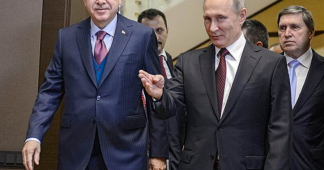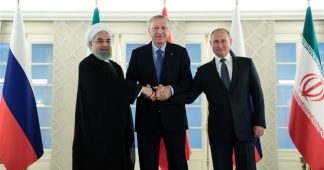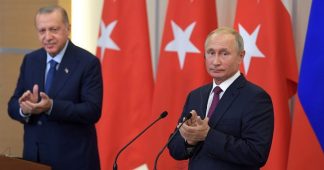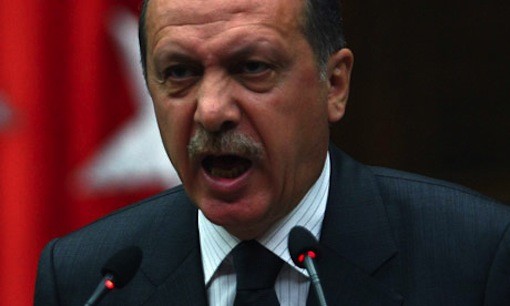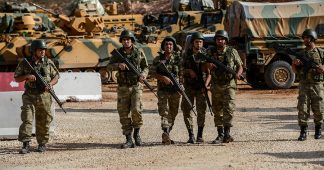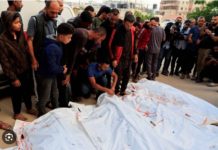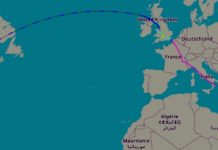3/05/2020
On March 5 in Moscow, Presidents Recep Tayyip Erdogan and Vladimir Putin held talks. The situation in Idlib was obviously the main point on the agenda.
Dawn of Idlib
In May 2019, the Syrian Arab Army, with Russia’s active support, started the military operation ‘Dawn of Idlib’. Its goal was to liberate the territory of so-called “Greater Idlib” which includes parts of the Idlib province and Aleppo, which are controlled by armed opposition fighters and terrorists from Hayat Tahrir al-Sham.
In 2018, following talks between Erdogan and Putin in Sochi, a de-escalation zone was created in Syria, and Turkey assumed responsibility for maintaining order in this zone. Turkish troops then entered Idlib.
The Syrian army’s offensive was aimed primarily at the militants, but also put the lives of the Turkish military in danger. Armed opposition groups in the region were actively supported by Turkey. On February 27, as a result of the air strike of the Syrian Air Force, 33 soldiers of the Turkish Army were martyred. Following that, Turkey began to strike with drones and artillery at the positions of the Syrian troops. According to Turkish reports, thousands of Syrian military personnel were neutralized.
At the same time, after days of fierce fighting on the eve of the meeting between Erdogan and Putin, Syrian President Bashar al-Assad advocated de-escalation of the conflict with Ankara. In an interview with Russian TV, he called the military confrontation with Turkey “illogical.”
#Putin and #Erdogan sign #Idlib de-escalation agreement pic.twitter.com/fYF4EtNTHz
— Ruptly (@Ruptly) March 5, 2020
Results of negotiations
Before the talks, the Russian president offered Erdogan his condolences on the death of 33 Turkish soldiers. According to Putin, nothing like this should ever happen again, so that nothing can ruin relations between Russia and Turkey.
“We need to discuss everything and analyse the current developments so that, first, this does not happen again and, second, that this does not damage Russian-Turkish relations, which I know that you value as well,” Putin said.
The leaders of Turkey and Russia discussed the situation in Idlib for three hours behind closed doors before they were joined by various delegations. The total negotiation time was 6 hours.
Speaking after the talks, Recep Tayyip Erdogan criticized Damascus, accusing them of escalating the conflict. At the same time, he stressed that the leadership of Russia and Turkey agreed to cooperate on a political settlement in Syria, and mentioned the situation in the region east of the Euphrates. Thus, there is potential for joint struggle against Kurdish separatism.
Russian and Turkish Foreign Ministers Mevlut Cavusoglu and Sergey Lavrov read out the text of the document adopted on March 5 in Moscow, an additional protocol to the Sochi Memorandum of 2018.
The document guarantees:
1.The commitment of Russia and Turkey to the sovereignty and territorial integrity of Syria.
2. The fight against terrorists of all kinds.
3. The start of a ceasefire regime in Idlib beginning March 6.
4. Establishment of a security corridor along the M-4 highway in Syria (6 km. -to the north and 6 km. to the south of the highway).
5. Introduction of joint Russian-Turkish military patrols along the M4 highway in Idlib (connecting Latakia and Aleppo) starting March 15.
Ceasefire in #Syria's #Idlib will be effective as of midnight on Thursday, #Turkey's President #Erdogan says#Aleppo #M4 #M5 #Putin #Turk #Russia pic.twitter.com/OikxXHhA7e
— Holypolitic (@holypolitic) March 5, 2020
The danger of escalation
The crisis in Idlib has done far more than result in fighting between Syria and Turkey, it has brought Turkey and Russia to the brink of war. Thousands of Turkish and Russian soldiers are at risk of dying in others’ games.
The fact is that this potential war is not in the interests of either Russia or Turkey. The clash will weaken both countries, both of which need the other’s support in the confrontation against US. For both Turkey and Russia, such a war would be a serious blow to the economy because of their interconnectedness. In addition, Russia could lose effective access to its Syrian bases through the Bosphorus and Dardanelles. This could result in serious military losses and loss of geopolitical prestige for Moscow. By quarreling with Ankara, Moscow will lose an important ally in its struggle for a multipolar world.
Meanwhile, Turkey will have to make concessions to the US in order to get American support against Russia. That means concessions in the Eastern Mediterranean and in regard to the Kurdish question. Given American support for PKK terrorists, this could pose a threat to Turkey’s territorial integrity. At the same time, American analysts openly declare that they intend to end the Erdogan regime. (https://uwidata.com/7713-the-us-has-already-lost-turkey/ ) In 2016, they made their first attempt at doing so. It is highly probable that, one way or another, the US will try to get rid of Erdogan after it splits off from Russia and Iran.
The simple way to do so is to encourage military adventures in Syria and Libya without providing real and substantial assistance. The goal is to use Turkey as a tool to confront Russia. Involving Turkey in protracted wars will undermine the Turkish economy, exsanguinate society and eventually undermine confidence in the authorities. The result of such a Turkish “Vietnam” could be a color revolution inspired by the West or a coup in which the pro-US politicians come to power.
It is indicative that on the eve of the meeting, George Soros stated that the West should support Turkey against Russia, despite his consistent hatred for Turkey and Erdogan. (https://www.ft.com/content/ae0b560c-5e03-11ea-ac5e-df00963c20e6).
Conclusion:
The fact that talks between Erdogan and Putin are taking place means that both Turkey and Russia understand the danger of escalation, both in terms of external forces and US agents inside Turkey and Russia.
The results of the talks show that Turkey and Russia intend to seek de-escalation of the conflict. Tactical disagreements in Idlib should not lead to the collapse of the strategic alliance between Turkey and Russia, and do not need to. Sustainable peace requires the will to compromise on both sides.
The positions of the two presidents demonstrate that Syria’s territorial integrity can serve as a common platform to help end the bloodshed. This integrity is the basis for stability in the entire region, and can only be achieved by fighting together against separatism and terrorism. If Moscow and Damascus work together to deal with the Kurdish terrorists, Ankara might approve the destruction of Islamic fundamentalists in Idlib and the disarmament of the Islamist opposition, perhaps on the model that proved successful in southern Syria.
However, there remains the possibility that continued provocations will once again put both countries on the brink of conflict.
Published at https://uwidata.com/8510-erdogan-and-putins-talks-on-idlib-a-brief-analysis/
